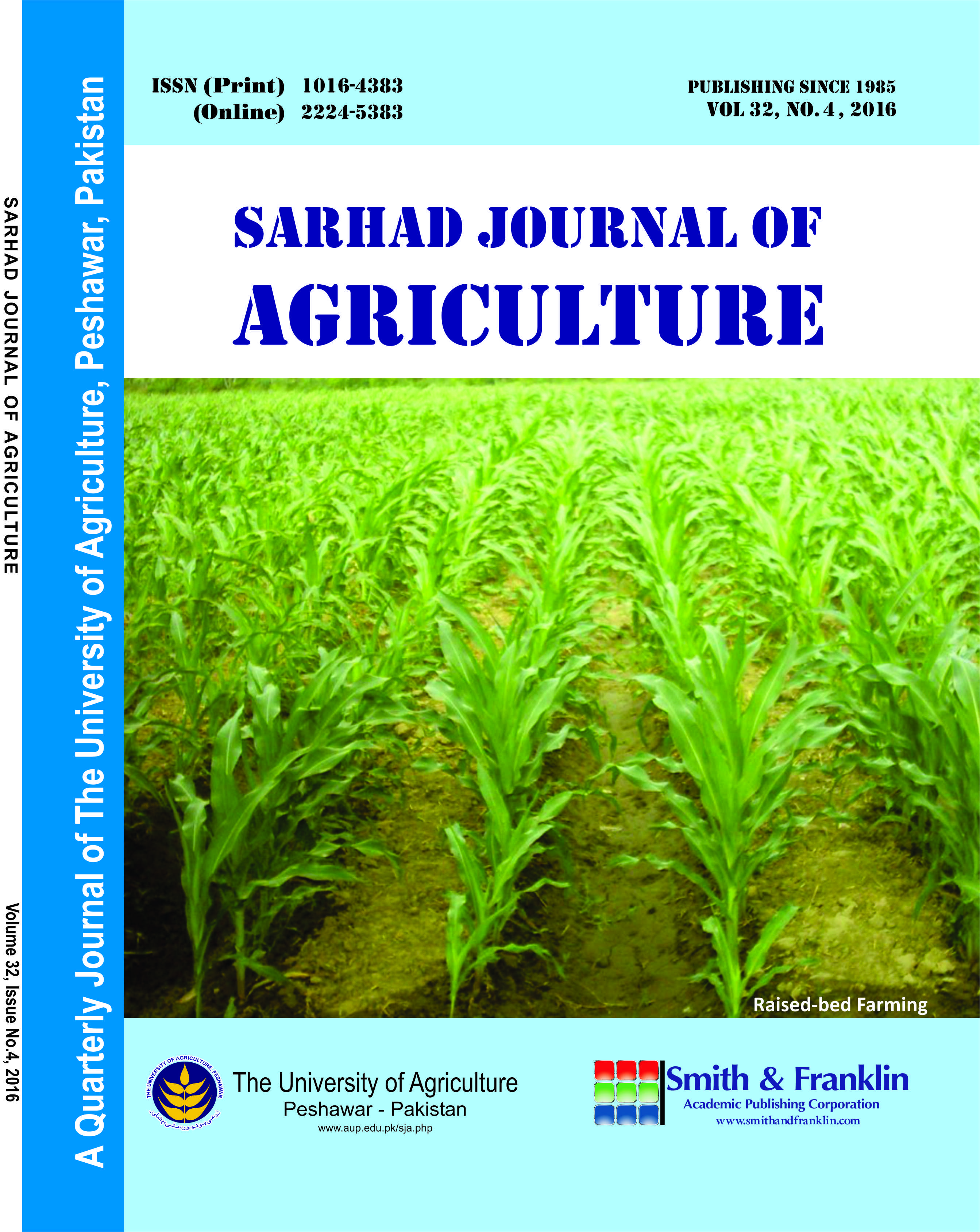Off-Farm Employment among Small Farm Holders of Different Tenurial Status in Peshawar Valley of Khyber Pakhtunkwa
Off-Farm Employment among Small Farm Holders of Different Tenurial Status in Peshawar Valley of Khyber Pakhtunkwa
Haidar Ali, Malik Muhammad Shafi and Himayatullah Khan
ABSTRACT
The present study investigated the off-farm employment among small farm holders of different tenurial status in Peshawar Valley of Khyber Pakhtunkhwa. A sample of 201 farm households (Owners, Owner-cum-tenants and tenants) was selected using random sampling technique and data were collected through a pre-tested interview schedule. This study is focused on two selected districts of Peshawar and Charsadda. Four villages were studied two each from the sampled districts. Analysis showed that owners (59.31 percent off-farm employment) were performing more off-farm jobs than the tenants (50.74 percent off-farm employment) and owner-cum-tenants (41.77 percent off-farm employment). The dominancy of owners in the off-farm employment was associated to the farm holding size (up to 1 acre), they operated. Similarly the small farm households (Owners, Owner-cum-tenants and tenants) of developed villages (i.e. Dawood Zai and Rajjar) perform more off-farm employment than the small farm households (Owners, Owner-cum-tenants and tenants) of underdeveloped villages (i.e. Garhi Baghbanan and Mufti Abad). This could be associated to the developed means of transport and communications, better education facilities, market facilities as well as availability of off-farm jobs locally. The study recommends that with the decrease in the size of holdings unemployment in the agriculture sector is likely to increase. There is a need to create off-farm employment opportunities. Agro based industries seems to potential area to generate employment opportunities. Simultaneously there is need for initiating skill development programs.
To share on other social networks, click on any share button. What are these?







